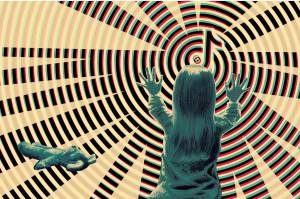News that billionaire Elon Musk is buying Twitter has shaken the world to the point that left-wingers are threatening to deprive us of their every thought by quitting the platform. My guess is this blustering will take those celebrities about as far away as they went when they pledged to leave the country if Trump was elected president. And though Twitter is likely far from rid of the Jameela Jamils and Chelsea Handlers of the world, even a brief reprieve from the balderdash could do us wonders.
Last weekend, I had the privilege of experiencing a one-of-a-kind event at my local theater. “Rick Benjamin’s Paragon Ragtime Orchestra” came to town and performed the original musical score to Buster Keaton’s Steamboat Bill, Jr., a 1928 silent film. I socialized with many friends and whispered about familiar faces — some in fancy dress — sipping Prohibition-era cocktails in the lobby of the grand 105-year-old theater, whose survival is nothing short of a miracle.
Then it was up to our seats in the balcony, where for two hours we were enthralled by the action on the screen and beguiled by the music from the orchestra pit. Nary a word was uttered while Keaton and his fellow actors delivered a powerful and memorable performance in black-and-white.
Even when a phrase occasionally flashed across the screen, it was way fewer than 240 characters. And when, at intermission, the audience chit-chatted with each other, it was to marvel at how much we’d enjoyed the show and didn’t miss the talking (to our surprise). Politics and current events were on no one’s mind or lips. We were too busy using the theater as it was intended when it was built in 1917.
My companions and I felt refreshed that evening, our spirits lifted and renewed, if only for a few hours. As I kicked off my kitten heels and hung up my long string of costume pearls that night, I reflected on why it had been such a particularly jolly good time (I always have a happy experience at that old theater).
A friend and I concluded it was because our imaginations had been awakened. Instead of reacting to words telling us how to think and feel, we were encouraged to react vocally to what was happening onstage, by hissing, booing, cheering, sighing, etc., and we obliged. When Keaton and friends mouthed words and gestured dramatically, we were left to fill in what they might be saying. The ensuing scenes would confirm our speculation, though the suspense and sometimes-surprises made the spectacle all the more amusing.
Perhaps, then, actions do speak louder than words. It’s time our media outlets took a cue from the silent films. No need for constant commenting, moralizing, buffeting us with worst-case-scenario sensationalism (Euronews.com has the right idea). A friend and I, talking about an upcoming camping trip he is taking, mused about how the best part of getting away is escaping the negative news. “If you didn’t listen to the news, you’d have no idea any of this ‘bad stuff’ was happening,” he said.
The world is literally getting louder, to the detriment of people’s well-being. The World Health Organization says noise pollution is an “underestimated threat that can cause a number of short and long-term health problems, such as, for example, sleep disturbance, cardiovascular effects, poorer work and school performance, [and] hearing impairment.”
There’s another type of noise that’s ruining our lives, and it’s similar to the photography/videography definition: “a grainy veil” in photos or a “background hiss… we don’t hear [or see] normally, but shows up in recordings [and photographs],” per photographylife.com.
The inane and more subtle noise we don’t notice creeping into our psyches is as damaging as the physical sounds of “progress,” and more dangerous in that it’s nearly inescapable — the newsy chatter that hums as background noise while you breakfast at the diner, the easy-listening soft rock that thumps in your brain while you compare lightbulbs at the hardware store.
Then there’s the “silent noise” that’s constantly running through your subconscious, like the ticker at the bottom of the screen on the news channel. It’s drivel you absorb every day from billboards, drive-time radio jocks, Facebook, Twitter, TikTok, Instagram, texts, memes, GIFs, pop-up windows, subliminal sidebar ads, pings, dings, rings, buzzes, emails, messages about your car’s extended warranty, PayPal’s updated terms of service, and the Banana Republic 40 percent off sale that only happens once a year every three days.
It’s everywhere, and much of this noise is not only unnecessary, but harmful, too. The world is getting louder, but no one is listening. And Twitter has been one of the worst offenders, encouraging everyone to “shout” over one another. It’s gotten to the point that only the “loudest” people, i.e., those who say the most extreme things, are heard (unless they’re censored).
I remember when I was in college watching a classmate of mine grocery shopping with headphones in. I thought it so odd and anti-social to drown out the world in such a public place. These days, it seems most people go about life plugged into something, listening, but not to one another. Silent films remind us that a lot of words aren’t what’s needed, but that interacting and bonding with our fellow man is.


















